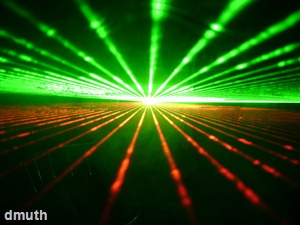![]()
A leading optometrist has claimed that while
corrective laser surgery undoubtedly has its benefits, it is not worth the risk.
Writing for the New York Times, Claire Assam said that problems that can arise as a result of the
vision correction procedure put her off undergoing surgery, despite having bad eyesight herself.
She told the news provider that "at one point I thought I wanted [
corrective laser surgery]", but added she has since decided against the procedure.
"You see a few times when things go wrong, or someone's not happy, or they actually still need glasses afterward. Or it's not a perfect 20/20 with glasses or contacts," she noted.
"To me, it's not worth the risk, though that's not to say it's not for anyone. It's a personal decision," she added.
There are a number of potential side effects to
corrective laser surgery if the procedure is not performed correctly.
Haloing is one such problem, which can result in rings of light appearing around light sources - particularly in high-contrast situations.
The side effect can make driving at night particularly difficult.
Commenting on
vision correction treatments for the young, she said that glasses had become more fashionable in recent times and that most optometrists wear either glasses or contact lenses as opposed to having
corrective laser surgery.
Another alternative to undergoing
laser eye surgery is wearing i-GO's Ortho K corrective contact lenses.
The
vision correction devices are worn overnight and gently reshape the wearer's eye, correcting their vision and doing away with the need to wear contact lenses or glasses during the day.
Unlike
laser eye surgery, Ortho K lenses have none of the permanent side effects associated with surgery and a prescription of lenses costs less than going under the knife.
Ortho K lenses can also benefit contact lens wearers who suffer from irritation and dry eyes, without the need for eye drops.


